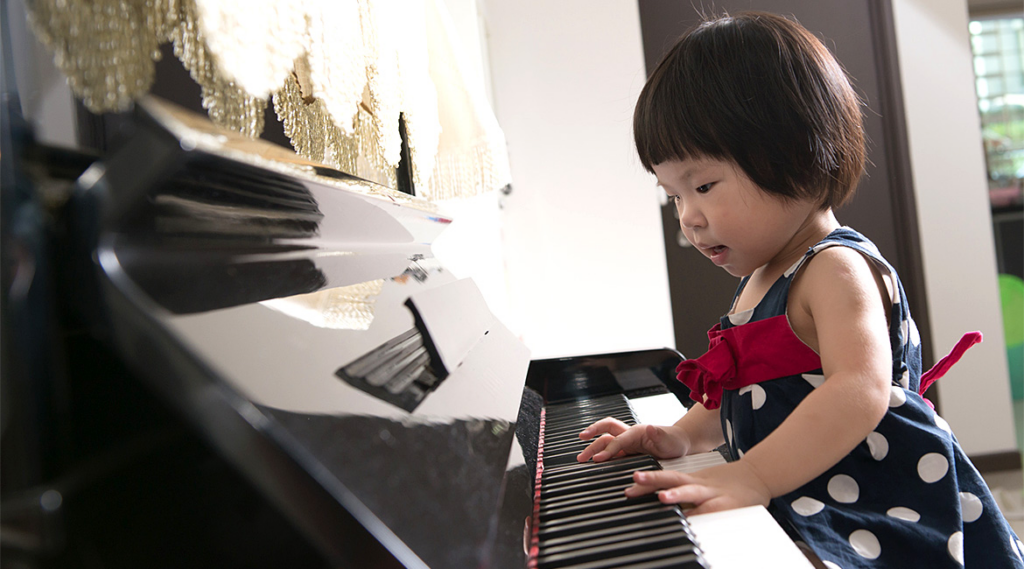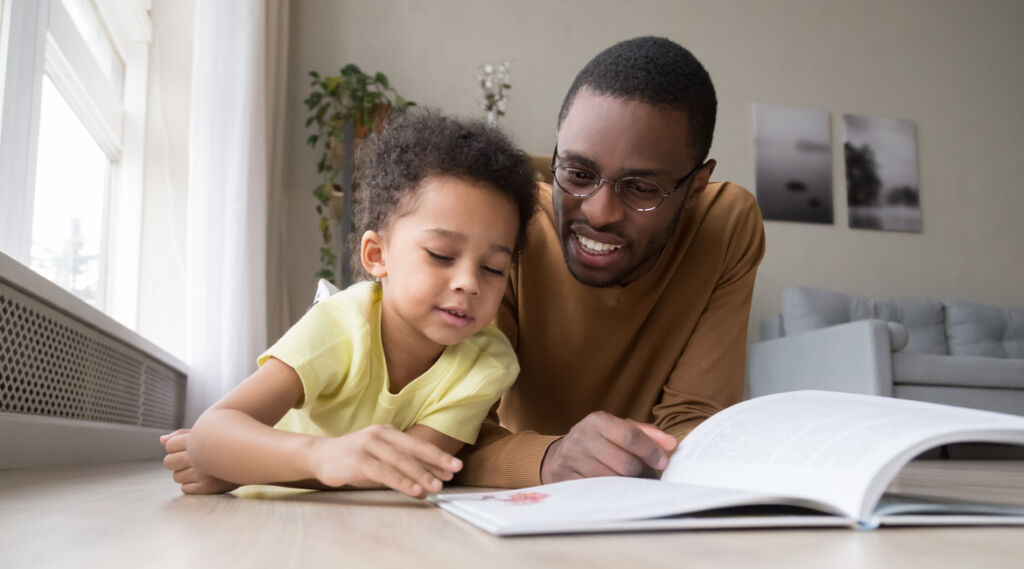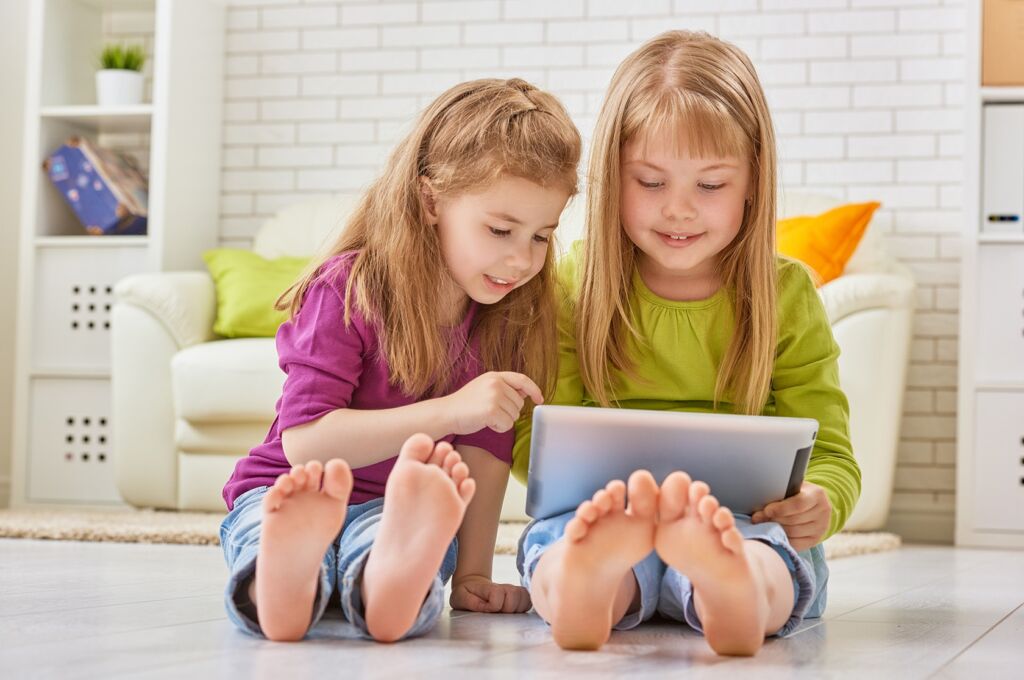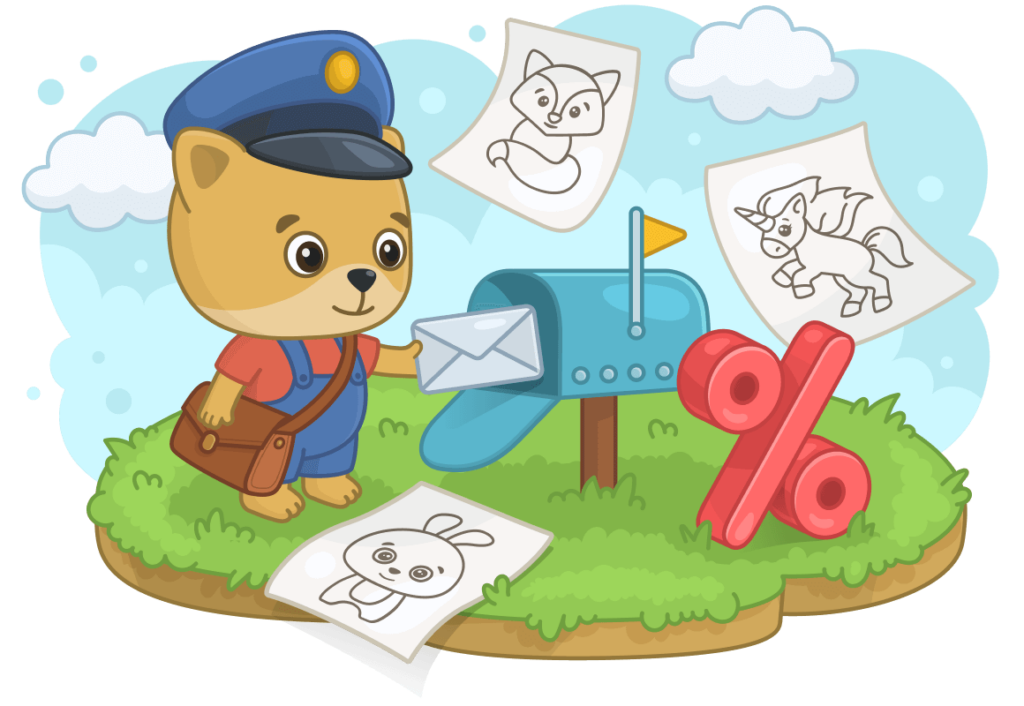Introducing your little one to music at an early age can have tremendous benefits for many different stages of development. Studies show that when music is a part of a child’s daily life, there are significant gains in cognitive, social and motor-skill development. Plus, music time is a great way to reduce family stress and bond with your child. Read on to see what the musical buzz is all about.
The Science behind Singing
Music can have healthy benefits for children starting as early as their time in the womb. Babies are able to hear while in utero and some may even show a preference to certain genres of music when heard from outside of the womb. When a baby is born, they can also recognize their mother’s voice as early as three days after birth. In fact, moms are biologically programmed to talk to their babies in an almost song-like pitch. All of that cooing and lullaby singing boosts mega benefits for your little one by teaching them that their needs can be understood and met. A mother’s song can adapt to the needs of her child by calming or soothing them or waking them up for a feeding time. The rhythmic, song-like pattern is a child’s first steps to cognitive development outside of the womb. And research shows that children actually prefer their mother’s voice to any other sound in the whole world!
Early Childhood Bonding
As your child begins to learn and grow, music is one of the best outlets for development. A child’s brain is pre-programmed to process music in the same way that it is pre-programmed to process language. Singing nightly lullabies like “Twinkle, Twinkle” or “I’m A Little Tea Pot” can help children understand the connection between movement and music. And while they are doing motions to the songs, their brain is able to store the information in the memory, boosting the brain’s ability to retain information. Children who listen to music frequently also have a higher auditory processing center. Setting up music times in your house can help your child have those important bonding times with you that they won’t forget. For years, you may love to sing “B-I-N-G-O” before you gradually move toward older, more developed song choices as a way to come together. Having a designated time to blast some music and “shake what your mama gave you” will also help your child develop important motor skills.

Hear the Rainbow
Many researchers agree that there is no certain genre that affects a child’s development when compared to the music in general. It’s important to introduce your child to all different forms of music as they are preparing to grow. Limiting a child’s music library to only children’s songs, or only classical, or only rap can hinder their ability to learn about the important parts of all genres of music. Playing a little jazz here and there, with some country storytelling with some beautiful opera , with some fun hip-hop can help your child develop a musical palate with all different kinds of instruments and techniques giving them a more well-rounded music repertoire.
Music and Education
According to a study published in the Frontiers in Neuroscience, musical training in children is associated with a heightened state of sound sensitivity, as well as, enhancement in verbal abilities and general reasoning skills. Music education also heightens awareness in the left cortex of your child’s brain, helping them with processing and mathematical skills. Having music class in an organized, educational setting can even further expand your child’s ability to learn these specialized skills. There are many resources available for finding the perfect music class for your child. Music Together is a great option for parents who want to start instilling a love for music at an early age. Children are taught to use different variants of the human voice, how to come together for music with others, how to play an instrument and how to incorporate movement into their song time. As a child grows, music programs will be an important part of their grade school experience. As they reach their preteen years, children can opt to learn a musical instrument in band or sing in a school choir or theatre program. Choosing a school with an excellent music program or finding ways to support music in public schools is an essential part of your child’s music education.
There’s An App For That
Thankfully, in today’s society there are a ton of ways to bring music into your child’s life. Don’t be afraid to stream your favorite songs in the car or let your child try out a musical instrument, like a piano, via a smartphone app. While your baby is in utero, there are little belly buds that softly play “Beethoven” and “Mozart” to the womb. Apps are also available that help you start a band or make learning the ABCs really as easy as 123 by incorporating catchy tunes and rhythms. The musical world is truly your child’s oyster!
Though it is hard to remember the Pythagorean Theorem, you can almost always remember the words to your favorite songs or a moment in time when a certain song was playing, like at your first dance or when you first got to drive a car. Just hearing a favorite song can instantly boost your child’s mood and help them reduce stress. Now that’s a gift that keeps on giving!



